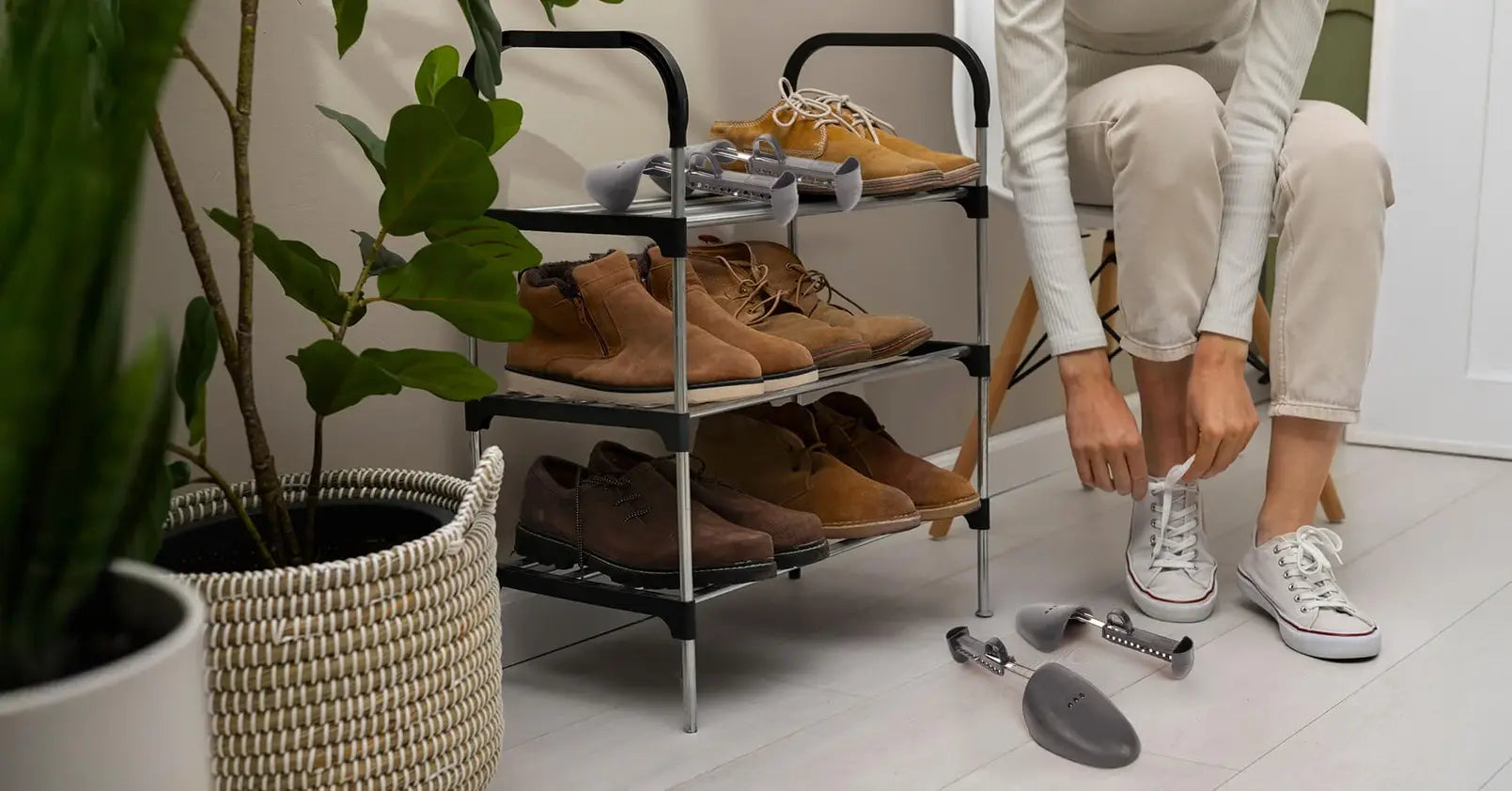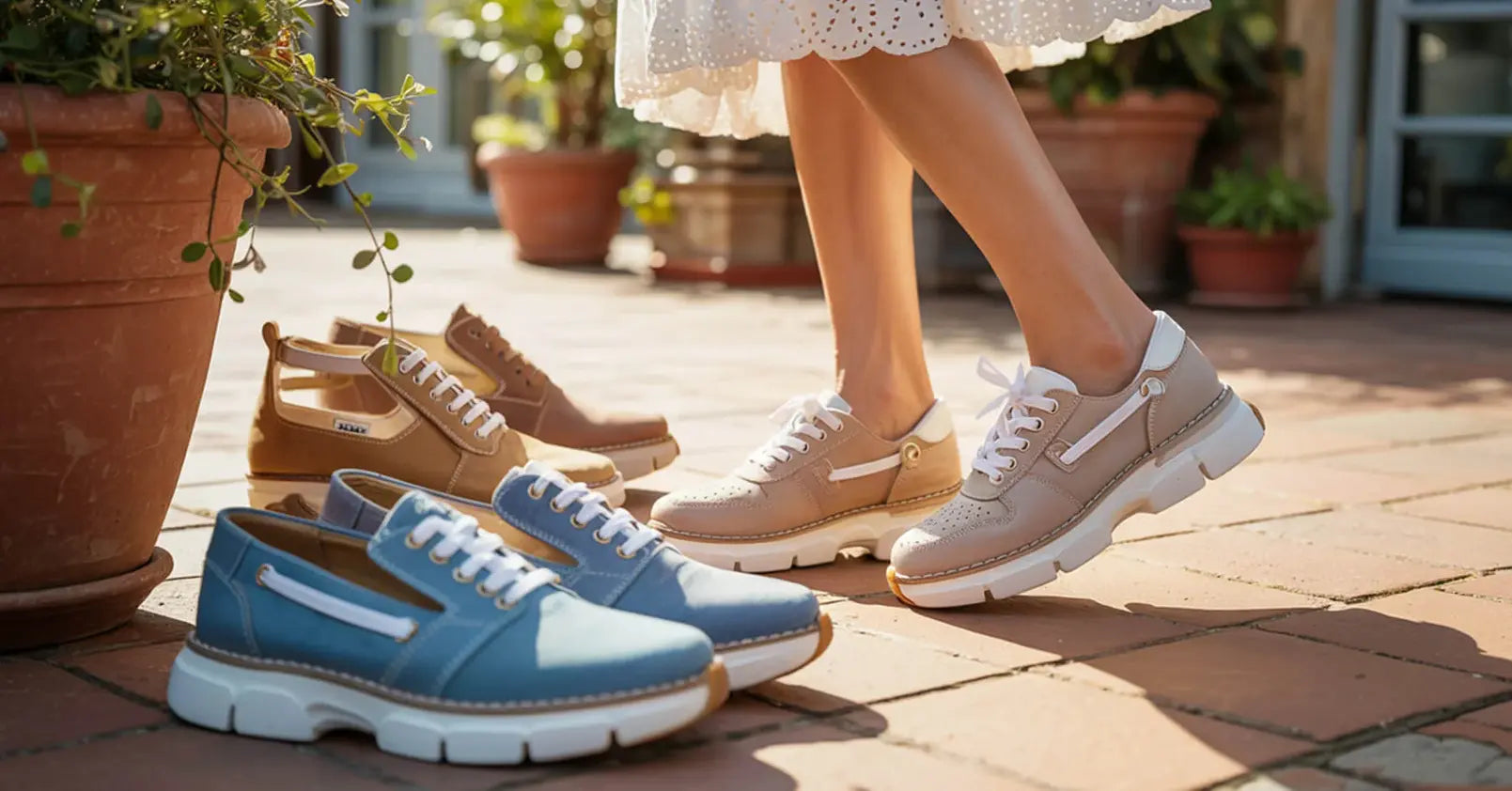
Why shoe trees are the unsung heroes of closet organization
When we think about organizing our closets, our minds often go straight to hangers, shelves, color coordination, or maybe even fancy storage bins. But there’s one humble tool that rarely gets the spotlight—and yet quietly plays a crucial role in both organizing and preserving what’s often the most neglected part of our wardrobe: our shoes.
It might sound old-fashioned, maybe even unnecessary. But if you care about your shoes—or your closet staying neat—shoe trees are more important than they seem.
1. What exactly are shoe trees?
Shoe trees are foot-shaped devices, usually made of plastic or wood, that are inserted into shoes when they’re not being worn. Their main purpose is to help shoes maintain their shape and prevent creases, but their benefits go far beyond that.
Think of them as subtle caretakers working behind the scenes—preserving structure, absorbing moisture, and keeping your shoes ready for the next wear.
2. Why do they matter more than you think?
2.1. Shoe trees maintain form and prevent “Closet Aging”
Shoes don’t just wear out when you walk in them—they age while sitting in your closet too. Over time, gravity and moisture cause materials to sag, curl, and warp. Shoe trees prevent this passive deterioration by supporting your shoe’s internal structure.
Think of them as the skeleton inside your shoe—keeping it upright, confident, and always ready to wear.
2.2. Better shoe posture = Better foot health
This might surprise you: when shoes lose their shape, they can stop supporting your foot properly. A flattened arch or crumpled toe box can affect your posture, gait, and even cause foot pain over time.
By keeping your shoes in proper form, shoe trees indirectly help preserve the ergonomics your shoes were designed with—making them not only look better but feel better.
2.3. They create visual harmony in your closet
When every pair of shoes holds its shape and stands upright, your entire closet looks instantly neater. There’s no slouching pile of sneakers or collapsing boots in the corner. Shoe trees help create uniformity, much like matching hangers do for your shirts.
This subtle visual order reduces clutter, helps you find what you need faster, and makes your space feel calm and curated.
2.4. They make shoe maintenance easier
Trying to clean a collapsed shoe is like ironing a wrinkled shirt while wearing it—it just doesn’t work. Shoe trees like SHOEGR Shapeit - Adjustable Shoe Shapers make cleaning and caring for all types of shoes much easier. By holding the shape, they provide a firm surface for cleaning, brushing, polishing, or conditioning.
Shapeit is machine-wash safe and built with anti-rust stainless steel, making it perfect for both hand cleaning and machine washing. Its ventilated design helps shoes dry faster and more evenly while preventing odors and creases. It’s also great for storing shoes long-term — keeping everything in perfect shape.
2.5. They train new shoes to hold their shape
Just bought a new pair of leather shoes or boots? The break-in period is critical. Shoe trees can help "train" the shape of the shoe as it molds to your feet—ensuring it maintains that ideal form rather than collapsing in weird ways.
It’s like setting the foundation correctly before building a house. Small effort now, long-term benefits later.
2.6. Reduce the cost of replacement
Let’s get practical: good shoes aren’t cheap. If your shoes last longer—thanks to a shoe tree—that’s real money saved over time. They help delay the need for resoling, reshaping, or replacing altogether.
It's one of the most cost-effective investments you can make in your wardrobe.
2.7. They encourage a “Slow Fashion” mindset
Using shoe trees is a small ritual that reminds you to care for what you own. It encourages thoughtful habits—like putting things away properly, maintaining quality, and resisting fast fashion replacements.
They quietly support a minimalist, sustainable lifestyle, where every item in your closet earns its space and is treated with intention.
3. How to choose the right shoe tree?
Not all shoe trees are created equal. Here’s what to look for:
3.1. Material: Plastic is lighter and great for travel. It’s also cost-effective. Cedar is a great choice too, however, can be bulky and costly. It does naturally absorb moisture and has a fresh, clean scent.
3.2. Adjustability: Look for models with spring-loaded mechanisms or adjustable lengths to ensure a snug fit.
3.3. Shape: Opt for a shoe tree that matches your shoe type—dress shoes, boots, loafers, etc. A mismatched tree can distort rather than protect.
4. Not just for fancy shoes
While shoe trees are a staple in the wardrobes of well-dressed men or dress shoe collectors, they’re just as useful for everyday shoes. Sneakers, loafers, boots—any closed toe footwear in your wardrobe can benefit from a little post-wear care.
Even if you only use shoe trees for your most-loved pairs, the difference in how those shoes wear (and how they look in your closet) will be noticeable.
5. Small effort, big payoff
Closet organization doesn’t have to mean a total overhaul. Sometimes, it’s the quiet, almost invisible changes that make the biggest difference. Shoe trees don’t take up extra space, they don’t require any installation, and they’re incredibly low maintenance.
And yet? They help your closet look better, your shoes last longer, and your daily getting-ready routine feel a little more refined.
Final thought
Shoe trees may not be glamorous. They don’t sparkle or turn heads. But that’s what makes them special. They do their job without asking for attention—and they do it well.
So next time you're tidying up your closet or investing in wardrobe upgrades, don’t overlook the simple shoe tree. It might just be the unsung hero your shoes—and your space—have been waiting for. And if you’re looking to build a complete care routine, combining shoe trees with the right shoe care products can keep your footwear looking newer, longer.








